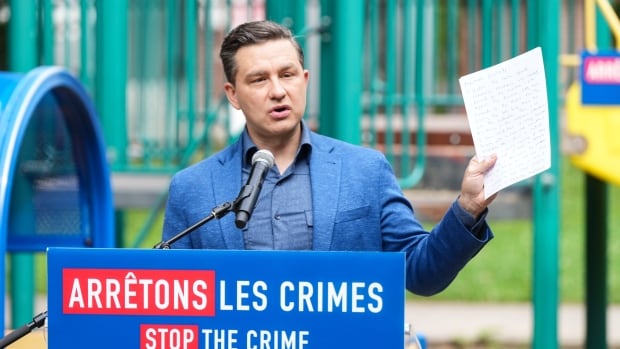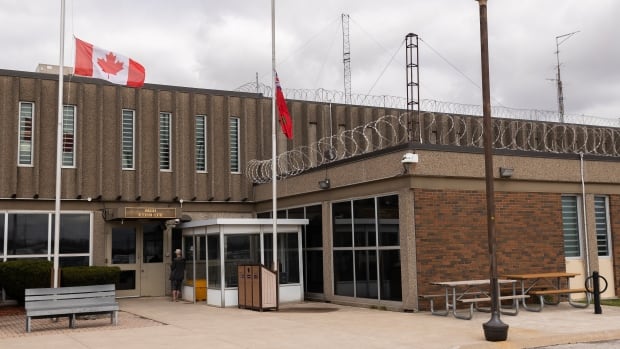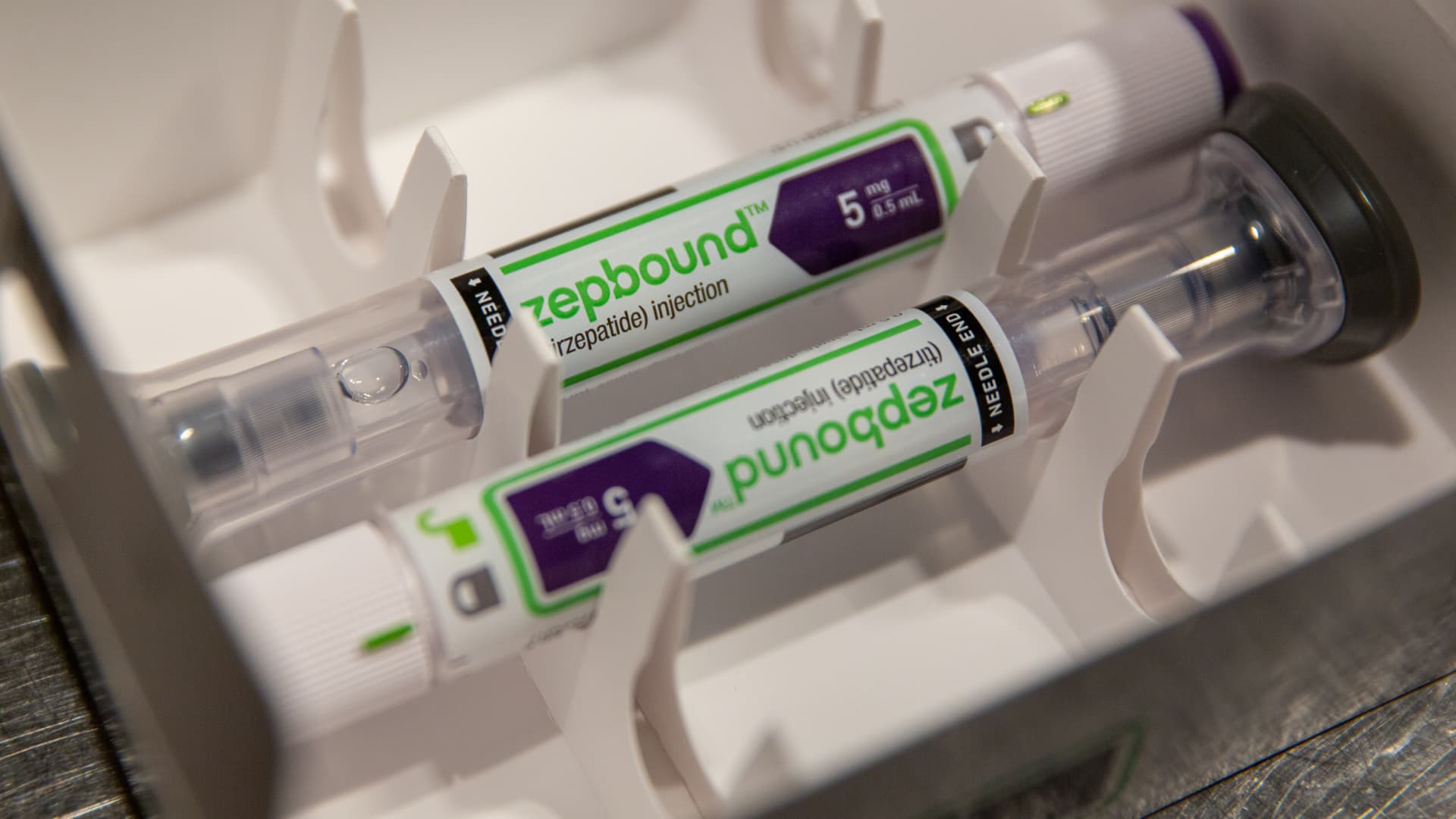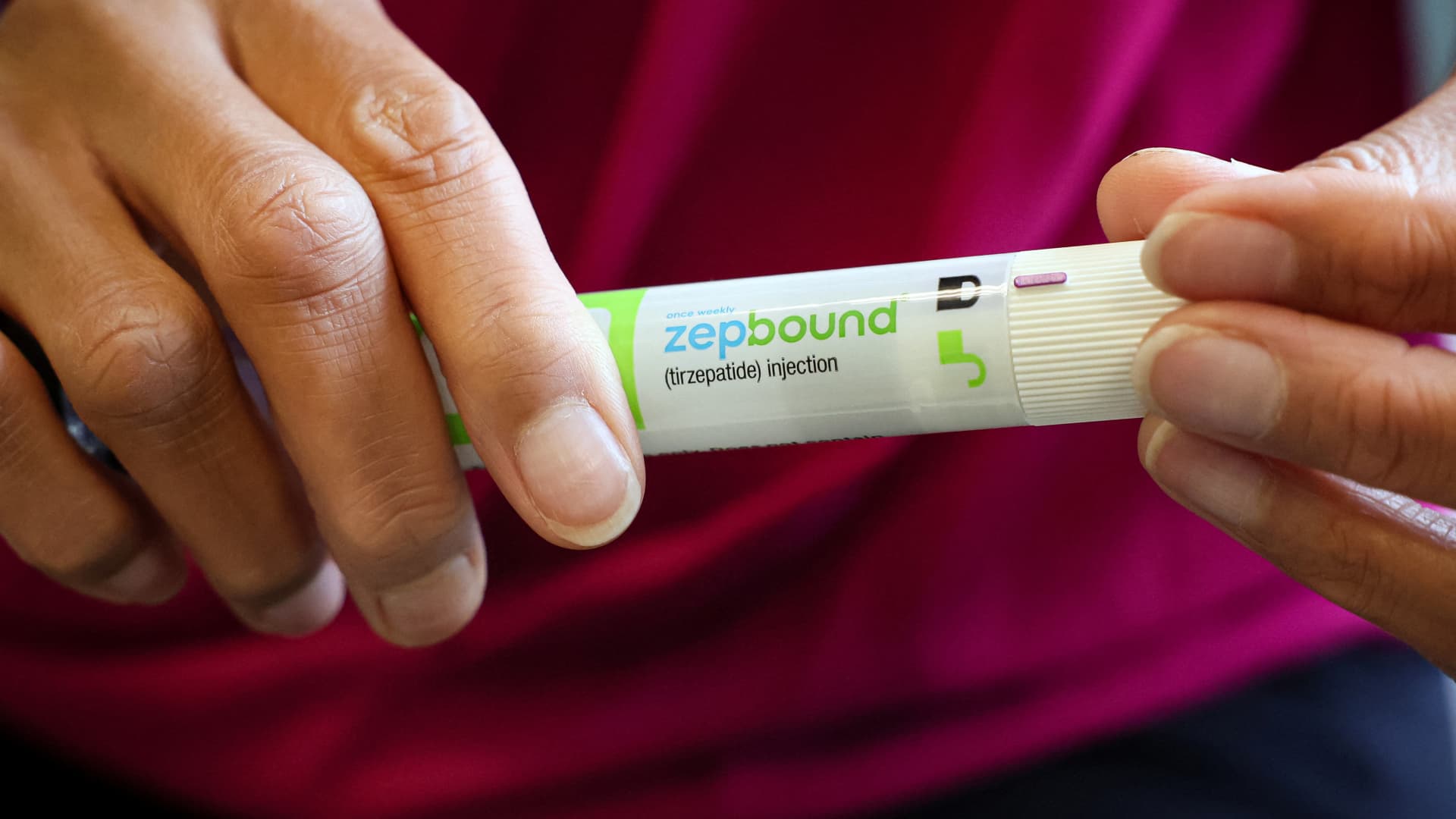Conservative Leader Pierre Poilievre called on the federal government to shut down Montreal’s first supervised drug-inhalation centre while stopping in the city Friday, saying the site is a “drug den.”
The Maison Benoît Labre drew criticism from residents before it opened in April and in the months following, with some parents saying they were blindsided by the decision to have the centre in a building less than 100 metres from the Victor-Rousselot elementary school.
Located on Greene Avenue near Doré Street, the Maison Benoît Labre also contains 36 studio apartments, a kitchen and drop-in centre for people who are transitioning out of homelessness.
At a news conference in a small park that borders both the centre and the school, Poilievre said other federal parties and their supporters in the media “want to make it sound like there’s a constitutional obligation” to allow supervised consumption sites to open anywhere.
Vowing to close such sites across the country, Poilievre said they have made “everything worse.”
“We will close safe injection sites next to schools, playgrounds, anywhere else that they endanger the public and take lives,” he said, before disputing the use of the term “safe injection site.”
“Kids should not have to cohabitate with hard drug use and crime.” Poilievre said. “Under section 56.1 of the Controlled Drugs and Substances Act, the government has the power to accept or refuse a supervised consumption site like Maison Benoît Labre.”
Minister says consumption site needs to near other services
In June, the Conservative leader sent a letter to federal Health Minister Mark Holland, requesting that the government revoke the exemption it granted to the centre to open in Montreal’s southwestern Saint-Henri neighbourhood.
He charged that the government’s policies, supported by the Bloc Québécois, “have increased feelings of insecurity and homelessness throughout Quebec.”
Andréane Désilets, executive director of Maison Benoît Labre, said in a statement Friday that the centre is working with the regional health authority, the municipal government and other stakeholders to ensure services are sustainable and integrated in the sector.
“The mission of La Maison Benoît Labre is to support the most vulnerable people in our society and has been a key player in the community for 75 years,” she said, adding that the centre did not want to “enter into a political debate.”
“We want to reiterate that the services we offer are essential to responding to the increase in homelessness and the overdose crisis,” Désilets said.
A spokesperson for Minister of Mental Health and Addictions Ya’ara Saks said in an email Friday that while Ottawa does not provide core funding to supervised consumption sites, those sites save lives.
“To be effective, these services need to be easily accessible by those who need them which often means that they are located inside services they already access,” the spokesperson said.
“We need a full continuum of care so people can stay alive to make it to recovery which includes: prevention, enforcement, treatment and harm reduction.”
Opposing cohabitation
Poilievre’s appeal comes days after Montreal Mayor Valérie Plante announced the city would mandate the Office de consultation publique de Montréal to conduct public consultations on solutions to the homelessness crisis.
The administration said it was seeking ways for residents to live more “harmoniously” with the unhoused population and provide more input on projects like Maison Benoît Labre.
On Friday, the Conservative leader said that the concept of cohabitation was “Orwellian terminology” invented by politicians like Plante and Prime Minister Justin Trudeau.
Asked how he would support people with addiction, Poilievre said a Conservative government would offer “real treatment” to end addiction rather than finance supervised consumption centres, but did not provide details about a potential policy.
“The only solution is not to use hard drugs,” he said.
A spokesperson for Quebec’s Health Ministry said in an email Friday the current public health crisis requires implementing “pragmatic and humane solutions,” and the ministry has chosen to take a “collaborative approach.”
It is in this spirit that the regional health authority, the CIUSSS du Centre-Sud-de-l’Île-de-Montréal, and its partners participate in a committee that works to “inform, listen and ensure the safety of citizens and workers in the sector,” the spokesperson said.
Some measures currently in place include deploying intervention workers near school grounds, having a team responsible for cleaning the premises and increasing the presence of bicycle patrol officers during the summer.
A spokesperson for Immigration Minister Marc Miller, whose riding includes Saint-Henri, said he has met with parents and neighbours in the area who expressed concern. He recognized the site lacks staff and that there are still addiction issues and drug dealers in the area, but solutions need to be holistic.
“Harm reduction measures such as supervised injection sites are evidence-based and save lives. But it’s important that they’re done in the right way,” Miller’s spokesperson said in a statement.
“Poilievre is instrumentalizing this issue to incite fear. He doesn’t care about the parents or the importance of good neighbourliness. He’s hijacking their concerns for his own political motives.”





